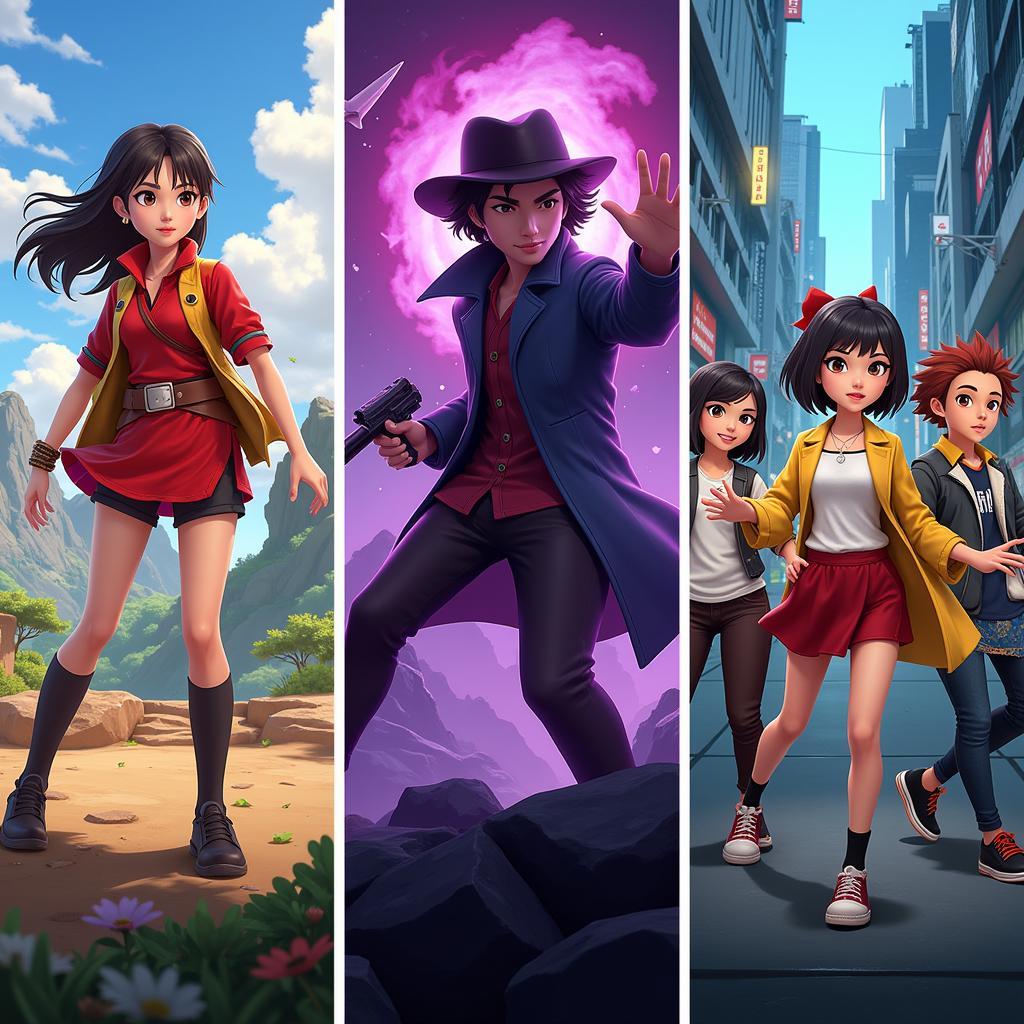From the sprawling landscapes of ancient China to the neon-lit streets of futuristic Tokyo, Asian characters have become an increasingly prominent fixture in the vast and diverse world of video games. As the gaming industry continues to evolve, so too has the portrayal of Asian characters, moving beyond simplistic stereotypes and towards more nuanced and authentic representations. This exploration delves into the history, challenges, and triumphs of representing Asian Characters In Video Games, examining the impact of cultural exchange, evolving industry trends, and the ongoing quest for inclusivity.
 Evolution of Asian Characters in Video Games
Evolution of Asian Characters in Video Games
Early Representations: Stereotypes and Archetypes
In the early days of video gaming, limitations in technology and cultural understanding often led to the reliance on stereotypes and archetypes when depicting characters of Asian descent. Martial arts masters, ninjas, and samurai warriors dominated the screen, often portrayed as stoic figures with extraordinary fighting abilities. While these representations drew inspiration from genuine aspects of Asian culture, they often lacked depth and perpetuated narrow perceptions. The overemphasis on martial prowess sometimes overshadowed other facets of Asian identities, contributing to a homogenized view of diverse cultures.
Breaking the Mold: Towards More Diverse and Nuanced Portrayals
As technology advanced and the gaming audience grew more diverse, developers began to move beyond simplistic stereotypes, embracing the richness and complexity of Asian cultures. Games started featuring a wider range of Asian characters with diverse backgrounds, motivations, and personalities. From skilled detectives to brilliant scientists to relatable everyday heroes, Asian characters began to occupy spaces beyond the confines of martial arts and ancient traditions.
 Asian Protagonists in Modern Games
Asian Protagonists in Modern Games
Cultural Exchange and Sensitivity: Navigating Representation with Respect
The increasing inclusion of Asian characters in video games has brought about a heightened awareness of the importance of cultural sensitivity and respectful representation. Developers have begun to engage with cultural consultants and experts to ensure authenticity in their portrayals. This includes paying attention to details such as language, customs, and historical context, avoiding harmful stereotypes and misrepresentations that could perpetuate negative perceptions.
The Power of Storytelling: Exploring Asian Identity and Experiences
Video games have emerged as a powerful medium for exploring themes of identity, culture, and heritage. Many games featuring Asian characters delve into personal narratives that resonate with players from diverse backgrounds. These stories often tackle issues of racism, discrimination, and the immigrant experience, fostering empathy and understanding among players.
The Future of Representation: Embracing Inclusivity and Authenticity
The journey towards more inclusive and authentic representation of Asian characters in video games is ongoing. As the industry continues to evolve, it is crucial for developers to prioritize diversity and representation in all aspects of game development, from character design to storytelling to voice acting. By embracing the richness and diversity of Asian cultures, video games have the power to challenge stereotypes, foster cross-cultural understanding, and create more engaging and meaningful experiences for all players.
FAQ
1. What are some examples of games with well-written Asian characters?
Several games have earned praise for their nuanced portrayals of Asian characters, including “Ghost of Tsushima,” “Sleeping Dogs,” “Yakuza” series, and “Life is Strange: True Colors.”
2. Why is accurate representation important in video games?
Accurate representation helps to challenge stereotypes, promotes cultural understanding, and creates a more inclusive gaming landscape for everyone.
3. How can I learn more about cultural sensitivity in video game development?
Numerous online resources and organizations are dedicated to promoting diversity and inclusion in games. Researching and supporting these initiatives can be a great starting point.
Need More Help?
For any assistance, feel free to reach out to us:
Phone Number: 0902476650
Email: [email protected]
Address: 139 Đ. Võ Văn Kiệt, Hoà Long, Bà Rịa, Bà Rịa – Vũng Tàu, Việt Nam.
Our customer support team is available 24/7 to assist you.





